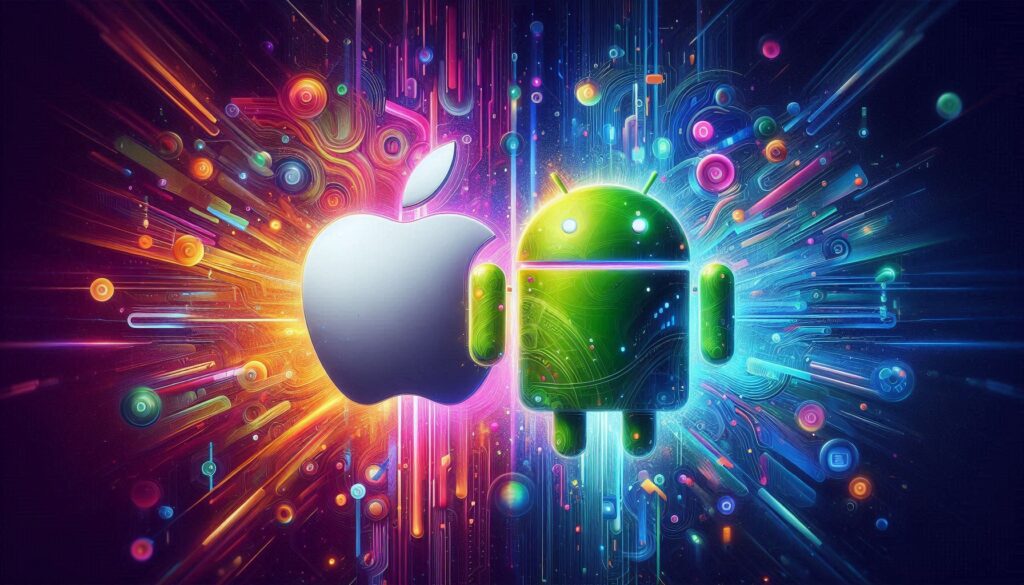Mobile Brands
Apple | Asus | Google Pixels | Honor
iQOO | Motorola |Nothing| OnePlus Oppo | Realme | Samsung | Vivo | Xiaomi

For years, the debate between Android and iOS has divided smartphone users worldwide. While many instinctively consider Apple’s iPhones safer and more reliable, recent research paints a more nuanced picture. In fact, Android has made remarkable progress in performance, security, and overall user experience — challenging Apple’s long-standing dominance.
Most people would instinctively choose Apple and argue that iPhones are the safest smartphones on the market — a claim Apple itself often emphasizes. However, things aren’t always as they appear. Recent studies suggest that Android may actually be safer than iOS in certain areas, thanks to advanced security features, faster updates, and better app transparency.
According to a YouGov study, iOS users are 65% more likely than Android users to report receiving three or more scam texts in a single week. In contrast, Android users are 58% more likely than iOS users to say they didn’t receive any scam texts during the week prior to the survey.
About the survey: Conducted by YouGov in collaboration with Google, the study surveyed 5,000 smartphone users across India, Brazil, and the United States.
Android manufacturers are increasingly following Apple’s lead in offering longer software support. Budget devices typically get 2–3 years of OS updates, mid-range models 4–5 years, and flagship devices are now approaching Apple’s level of long-term support. Additionally, most Android smartphones receive two years of extended security patches, ensuring prolonged protection.
Meanwhile, iPhones continue to lead with 5–6 years of major OS updates and security patches extending up to 8 years or more. This long-term support significantly boosts iPhone reliability and extends the usable lifespan of Apple devices.
The debate over UI and user experience is truly subjective. Apple’s ecosystem delivers a tightly integrated, consistent, and polished experience across iPhones, iPads, and Macs. Its App Store’s strict review process ensures quality, privacy, and security for users.
In contrast, Google Play offers a more open platform, with a vast selection of apps and greater flexibility for developers. However, this openness can sometimes invite security risks, requiring users to be cautious when downloading apps or making payments — particularly through gift cards, which are often targeted in scams.
Apple’s interface is widely praised for its simplicity and seamless design, while Android stands out for its customization and personalization options. In the end, neither has a universally “better” UI — it all comes down to personal preference.
When it comes to hardware, both Apple and Android brands deliver top-tier components. From cutting-edge processors and high-end cameras to advanced display and connectivity features, both ecosystems continue to push smartphone innovation forward.
For a deeper insight into how processors drive smartphone performance, read our feature: “The Hidden Powerhouse Behind Your Smartphone.”
Battery life remains one of the most important factors for users. Android smartphones often feature larger batteries and smart power optimization tools like Adaptive Battery, giving users more control and flexibility. In contrast, iPhones rely on a simpler Low Power Mode, which helps conserve energy but lacks the deep customization Android provides.
In the ever-evolving world of smartphones, there’s no clear winner between Android and iOS. Even after giving points for each section, it is clearly a tie between iOS and Android. Both have matured into powerful, secure, and feature-rich platforms. Android excels in flexibility, variety, and innovation, while Apple stands out for its ecosystem integration, design consistency, and long-term software support.
Ultimately, the best choice depends on what you value most — freedom and customization or stability and seamless experience. Either way, both platforms continue to define and refine the future of mobile technology.